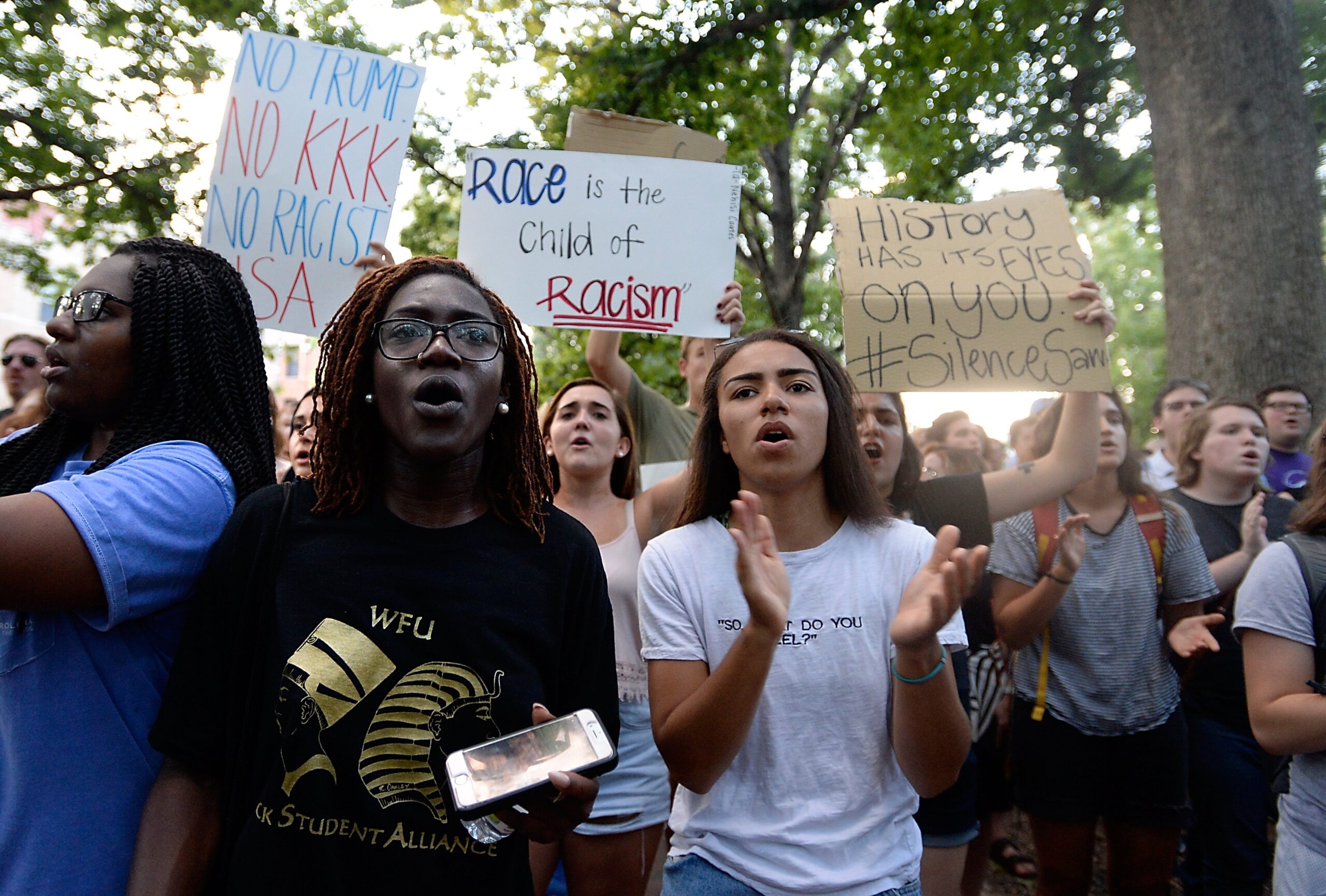Police at the University of North Carolina-Chapel Hill, alongside state investigators, monitored the cellphones of antiracism protesters demonstrating against the campus’ Confederate statue, “Silent Sam,” in 2017.
NBC News broke the story, which comes just a week after the UNC System revealed it paid upwards of $2.5 million to a Confederate group to take the controversial rebel statue, which was toppled last year by protesters.
Suggested Reading
The monitoring was done through a tracking technology called “geofencing,” which corrals the social media activity of people in a specific area, NBC News reports. It’s unknown how many times “geofencing” was used against lawful protesters at UNC, but documents requested by NBC show that it was used against anti-racism demonstrators in the immediate aftermath of the white supremacist rally in Charlottesville, Va., in August 2017.
Internal communications reveal that an anti-racism rally, “Charlottesville Solidarity Action” was flagged by an FBI agent to the chief of UNC campus police.
“We have no information of any planned violence at this time,” the FBI agent wrote in an email. “Any intelligence we develop will be pushed your way.”
From NBC News:
That afternoon at 3:12 p.m., when a small group of people had gathered at the statue, UNC police intelligence chief Jake Kornegay sent an email to the UNC police chief and three other members of the department.
“Geo-fence is being monitored and real-time distribution list established with Orange County LE and ISAAC/JTTF,” wrote Kornegay, referencing law enforcement from the surrounding county, the State Bureau of Investigation’s Information Sharing and Analysis Center and the local Joint Terrorism Task Force, which combines local and federal law enforcement. He also said he was doing “some link analysis on social media” and that only “a few people” were at the statue.
That evening, during the Charlottesville Solidarity Action, the crowd at the statue had grown to 175 to 200 people, according to minutes of a meeting held five days later by a university group referred to as the High Interest Events Team. “Aggressive in demeanor and approach,” said the minutes. “Event was surveilled.”
It’s unclear how many other universities have utilized similar technology against their own communities. But UNC-Chapel Hill’s case is additionally compelling because (rightly or not) it has developed a reputation as being a liberal bastion in a state that has deep pockets of conservatism.
But news of how the school—and the UNC System (which covers 16 other campuses)—has spent state dollars has challenged how far those progressive values actually extend. NBC’s reporting found the university paid Social Sentinel Inc., a Vermont-based company, $73,500 for geofencing software. The contract began in 2016 and ran through the end of October of this year. This is on top of clear ethical and legal concerns about protesters’ First Amendment and privacy rights.
The NC State Bureau of Investigations defended the surveillance technology, with a spokesperson, Anjanette Grube, telling NBC News, “This information was monitored in an attempt to prevent any potential acts of violence (such as those that have occurred at other public protests around the country, including Charlottesville) and to ensure the safety of all participants.”
“No records of the posts are kept after the event has concluded,” she added.
But Ari Ezra-Waldman, a constitutional and privacy law professor at New York Law School, likened the tracking technique to facial recognition software, which multiple studies have shown to be biased.
“Although this technology isn’t using AI to identify faces, the distinction still holds for geofencing: applied to a specific alleged criminal versus a lawful population in the name of ‘law and order’ or whatever,” Waldman told NBC News. “The former could be seen as souped-up police work; the latter is a dystopian police state.”
Straight From 
Sign up for our free daily newsletter.


